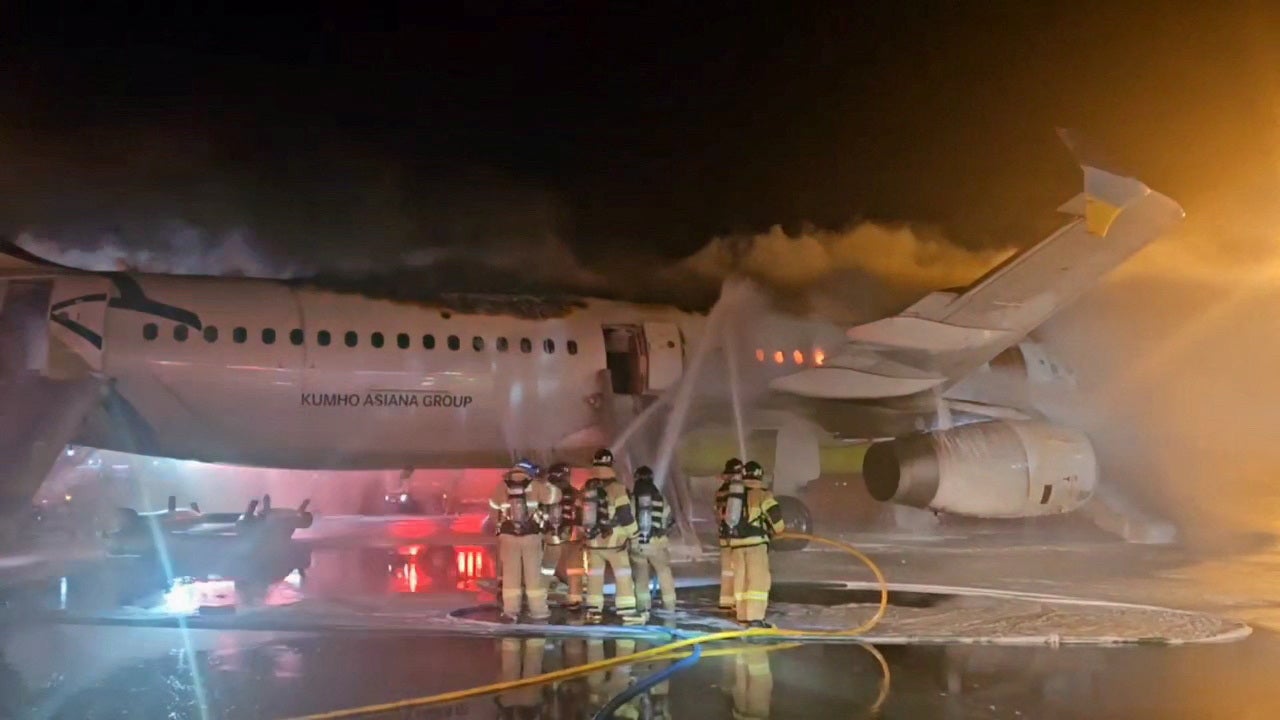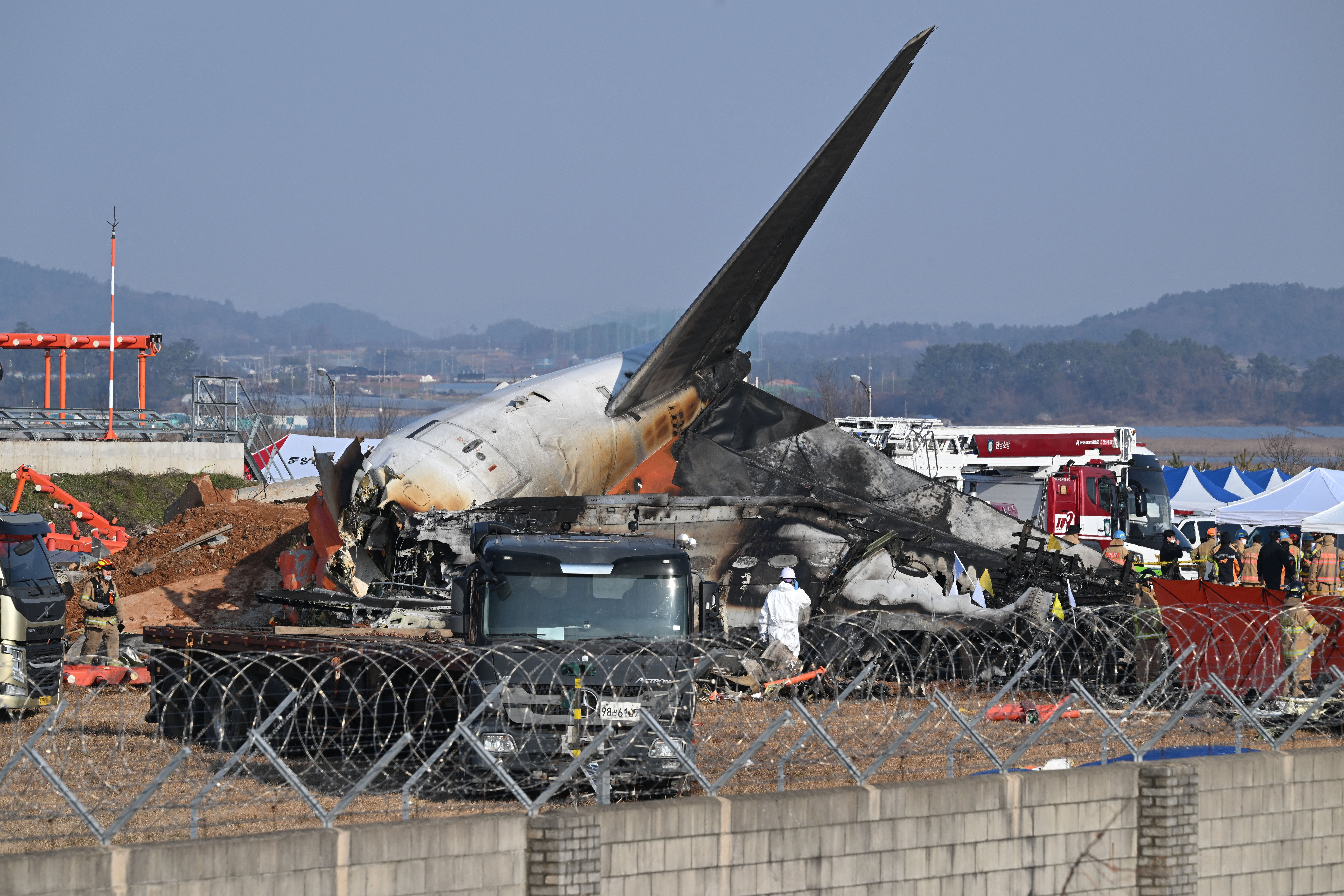An airline has banned power banks in luggage in overhead cabin after a huge fire destroyed one of its planes on the runway.
South Korea’s Air Busan will not allow passengers to keep power banks in luggage stored in overhead cabin bins, in what on Tuesday it called a preemptive measure after one of its planes was engulfed in flames last week.
An investigation led by South Korean authorities into the fire has begun, but no cause has yet been determined. Air accidents are nearly always caused by a combination of factors, according to experts.
Passenger carry-on bags inspected at boarding gates and found not to contain power banks will be tagged and then allowed in overhead luggage bins, in measures set to begin on Friday on trial routes, before expanding to all flights.
Any power banks should be kept with passengers so any overheating, smoke or fire can quickly be spotted and dealt with.
Air Busan said the changes, which will also include additional crew fire training and fire containment equipment on board, were in response to an increase in the number of power banks overheating.
The fire, which began on Jan. 28 while preparing for departure to Hong Kong, was first detected by a flight attendant in an overhead luggage bin in the rear left-hand side of the plane, Air Busan has said.

All on board were evacuated safely.
Lithium batteries are a type of rechargeable battery found in devices such as laptops, mobile phones, tablets, spare power banks and electronic cigarettes.
Global aviation standards say they must not be placed in checked-in luggage because they can start intense fires if they short circuit due to damage or manufacturing faults.
Cabin crew have fire extinguishers and thermal containment boxes or bags to isolate problematic devices on board.
Last week South Korea said it aims to rebuild its aviation safety system from scratch, launching a new committee to improve air travel in the country that suffered two major aviation incidents a month apart.
“In order to restore trust in our country’s aviation safety system, the government will make a determined effort to rebuild the aviation safety system from the ground up,” Deputy Minister of Land, Infrastructure and Transport Baek Won-kuk will tell the committee, the ministry statement said.
The government must address aviation safety as a top priority, he added.
In the deadliest air disaster ever on South Korean soil, a plane belonging to budget airline Jeju Air crashed at the country’s Muan airport on Dec. 29, killing all but two of the 181 passengers and crew members on board.

Duck remains were found in both engines of the plane, a preliminary investigation report said, indicating bird strikes occurred before the crash. Air accidents are nearly always caused by a combination of factors, according to experts.
The 10-week committee will include private sector experts and will look at issues including maintenance and aircraft utilisation rates at budget airlines, and airport construction and operation.
In response to the Jeju Air crash, which saw the plane belly land but then plough into a concrete embankment supporting navigation equipment past the end of Muan’s runway, authorities already said they would amend similar structures at seven airports around the country.












